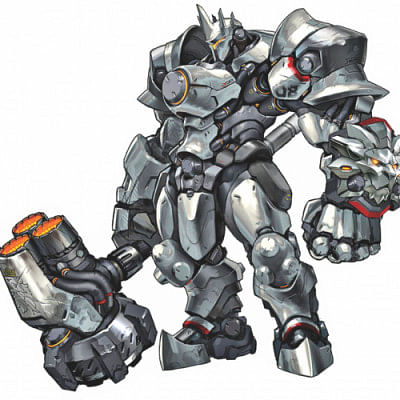Hero Shooters

Battleborn, Overwatch, and Paragon. Pretty sure every gamer has heard of at least one of these games. They are the shepherds who are going to usher in the birth of a new genre; hero shooters, to be precise. But what are hero shooters, exactly?
Simply put, they are third/first person shooters that more or less follow the MOBA format. For those who are unacquainted with what MOBAs are, the names League of Legends and DoTA 2 should explain the genre pretty well. Both games are very popular in Bangladesh and in the world. Raking in millions of dollars of revenue from tournaments, in-game transactions, and famous players' streams. It's no surprise why major companies are looking to cash in on this trend.
There are varying extents of which the genre's core principles are followed by hero shooters. Each of the three put their own unique twist to the formula. Let's look at them separately:
Overwatch: Blizzard was the first one to entertain the idea of an objective-based, team-oriented shooter with various heroes with different abilities. Overwatch is purely designed for competitive play with no single player component. There are no items that can be bought, there are no level ups. All heroes are free to play from the get-go. This ensures casual players can jump straight in and focus on the action while not having to worry about losing levels and all. This doesn't really alienate the competitive players either, as games tend to snowball less and you'll have to constantly outplay your opponent in order to beat them.

There are a wide variety of maps that include a mixture of claustrophobic alleyways and wide open spaces. Verticality is something that is largely present in the map design as well. The objectives in the modes are quite simple. There's an "escort the payload" mode and a "capture the point" mode akin to the Domination game mode from CoD.
The heroes are full of personality and quite varied. You have the likes of Reaper, a dual shotgun wielding phantom that can teleport short distances, gain invulnerability in his wraith form, and shoot in all directions like an action hero when his ultimate is triggered. Then you have Tracer, a girl who can travel back in time to restore her health and dash around the battlefield at blazing fast speeds.
Competitive prospects for this game are extremely high as Blizzard know how to properly support an Esports title. Also, the game has gone through multitude of betas that have reeled in a huge following just waiting for the game to release.
Battleborn: I'd say this is the weakest game in the line-up. Gearbox are the pioneers behind the Borderlands series and the references to the classic brand of humour are present here as well. However, Battleborn lacks in content and engagement where it excels in personality. There is a diverse roster of characters but balance is way off. This can be deduced from the fact that characters are positioned at the extreme ends of the power spectrum, i.e. they are either too strong or too weak.
The maps' inherent philosophy was to allow diversity and an extra layer of gameplay by introducing "buildables". Unfortunately, these are uninspired and not very interesting at all.
The game has a single player component that can be played in split co-op or with 4 players online. The campaign is decent but it isn't anything to write home about and after finishing it, there is no incentive to revisit missions.
Battleborn is further plagued by the issue of 30 fps on consoles. Developers need to learn that 60 fps in the norm for competitive games regardless of platform. Both Overwatch and Paragon check that box yet Battleborn doesn't. This along with many other fallacies hint towards the fact that Gearbox do not want to make this a competitively viable game which already tells us about its future; it will not sustain. The game needs refinement and a more competitive approach in order to make it appealing to its TG.
Paragon: The dark horse of the bunch, Paragon is probably the most "hardcore" of the three as it sticks to the MOBA model quite ardently. The classic three lane map with jungles in between is back along with towers along the lanes that lead up to a base. The main objective of the game is, indeed, to destroy the enemy base first.
There are still no items to be bought though. But as the game goes on, players can earn card points and experience. Before the start of every game, you'll have to define which card you want to take with you to battle. These can give you bonuses such as increased health regen, more damage, etc. However this limits a lot of on-the-fly decisions as you're stuck with a loadout once the game begins. This takes away a layer of gameplay that could've been explored by Epic Games.
The heroes are extremely bland as all of them follow non-vibrant, serious colour schemes; not to mention monotonous dialogue.
Paragon definitely needs more improvements in terms of character and gameplay variation if it aspires to be a popular pick for competitive gaming.
Love them or hate them, hero shooters are here to stay. It'll be interesting to see what sort of innovations are incorporated into the genre as the years go on. But this much is certain, the gaming world needs this freshness that the genre brings along.

 For all latest news, follow The Daily Star's Google News channel.
For all latest news, follow The Daily Star's Google News channel. 



Comments